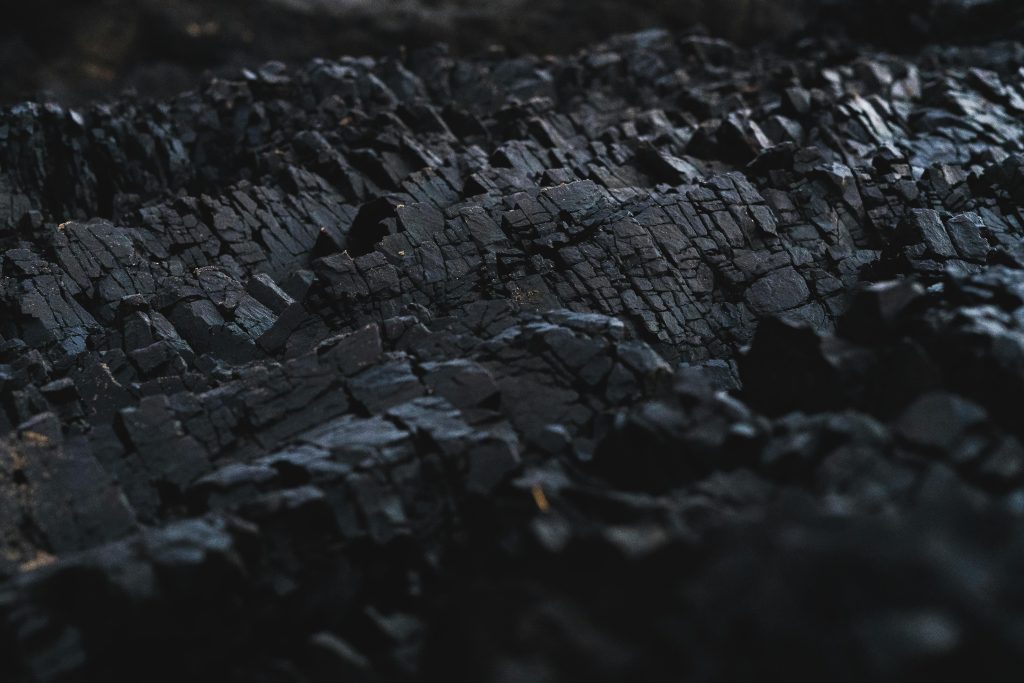
In the quest for sustainable and eco-friendly energy sources, charcoal has re-emerged as a viable alternative that bridges the gap between tradition and modern energy needs. For centuries, Charcoal has been a vital source of fuel for heating, cooking, and industrial applications. Today, with advancements in clean energy production and growing environmental awareness, natural charcoal stands out as a renewable and sustainable energy solution. At Biomass Wood Pellets, we recognize the immense potential of charcoal in promoting a cleaner and more energy-efficient world.
Understanding What Charcoal Is
Charcoal is a carbon-rich material produced through the process of pyrolysis—heating wood or other organic materials in the absence of oxygen. This process removes moisture and volatile compounds, leaving behind a lightweight, energy-dense fuel. Unlike fossil fuels, which take millions of years to form, charcoal can be produced sustainably using renewable biomass sources such as wood waste, agricultural residues, and other organic materials. The result is a cleaner-burning, efficient, and versatile energy source suitable for multiple uses.
Why Choose Charcoal for Sustainable Energy?
One of the major reasons charcoal is gaining popularity in the sustainable energy sector is its renewable nature. When charcoal is made from sustainably managed wood or biomass, it becomes a carbon-neutral fuel. This means that the carbon dioxide released during its use is offset by the carbon absorbed by the plants during their growth. In essence, using charcoal helps reduce the net carbon footprint, making it a more environmentally responsible choice than fossil fuels. Additionally, charcoal burns hotter and longer than raw wood, providing greater efficiency and less waste.
Environmental Benefits of Charcoal
Natural charcoal offers numerous environmental advantages. Firstly, it produces less smoke and fewer harmful emissions compared to traditional fuels such as coal or firewood. This reduction in pollutants improves air quality and supports healthier living conditions, especially in rural areas where biomass is a primary energy source. Secondly, sustainable charcoal production encourages the use of waste materials, which helps minimize deforestation and promotes better resource utilization. By converting agricultural residues into charcoal, we can reduce waste and support circular economy principles.
Charcoal and Energy Efficiency
When it comes to energy output, charcoal is known for its high calorific value. This means it delivers more heat energy per unit than many other biomass fuels. Because charcoal burns efficiently and steadily, it is widely used in industries that require consistent heat, such as metalworking, brick production, and food processing. In households, charcoal remains a preferred fuel for cooking and heating due to its ability to maintain a steady flame and produce minimal smoke. The efficiency of charcoal makes it a practical and economical choice for sustainable energy users.
Economic Benefits of Using Charcoal
The production and use of charcoal also bring significant economic benefits. In many developing regions, charcoal serves as both a source of income and employment. Local charcoal production industries provide jobs, stimulate rural economies, and promote sustainable forestry management practices. As demand for clean energy grows, the charcoal market continues to expand, offering new opportunities for entrepreneurs and communities alike. By investing in modern charcoal production technologies, we can enhance efficiency, reduce emissions, and create a stronger, more sustainable energy sector.
The Role of Charcoal in Reducing Deforestation
Sustainability is key in the use of charcoal. When charcoal is produced using controlled and eco-friendly methods, it can help reduce deforestation. Instead of relying on cutting down mature trees, producers can use waste wood, sawdust, and agricultural residues. These alternative raw materials ensure that the charcoal supply chain remains environmentally responsible. Furthermore, reforestation programs can be integrated into charcoal production cycles, ensuring a continuous and renewable source of biomass. By adopting responsible practices, charcoal can play a major role in preserving forests and promoting ecological balance.
Charcoal in the Transition to Green Energy
As the world transitions toward renewable energy, charcoal serves as an important bridge between traditional and modern fuel sources. Unlike fossil fuels, charcoal does not rely on non-renewable resources, and unlike some renewable technologies, it does not require heavy infrastructure or expensive installations. This makes charcoal an accessible solution for both rural and urban communities. In combination with other renewable sources, charcoal contributes to a diversified and resilient energy system that can support sustainable development goals globally.
Charcoal’s Future in Sustainable Development
The future of charcoal in sustainable energy looks promising. With innovations in biomass processing and energy conversion technologies, the efficiency and cleanliness of charcoal are improving rapidly. The integration of charcoal production into circular economy models also supports waste reduction and energy optimization. Governments and organizations worldwide are now recognizing charcoal as a key component of renewable energy strategies. As we continue to seek low-carbon alternatives, charcoal will remain an essential player in ensuring energy security and environmental conservation.
Conclusion
In conclusion, charcoal stands as one of the most reliable and sustainable energy sources available today. Its renewable nature, efficiency, and environmental benefits make it a powerful alternative to fossil fuels. By promoting sustainable production practices and responsible use, charcoal can significantly contribute to reducing carbon emissions and supporting global energy goals. At Biomass Wood Pellets, we believe that embracing natural charcoal is not just a return to tradition but a step forward toward a cleaner, greener, and more sustainable energy future.



